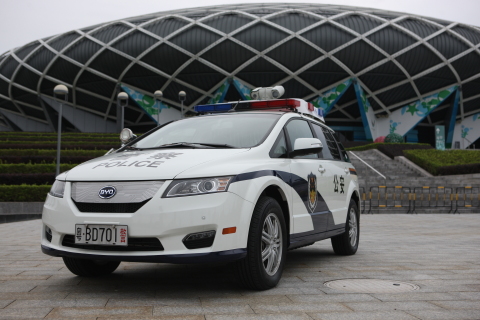BYD surpasses Tesla to become the world’s largest electric car manufacturer in the global automobile industry.
BYD, Chinese electric car manufacturer, surpasses Tesla to become the world’s largest automaker in the production of electric vehicles. Founded in 1995, China’s BYD began as a battery company and over the years has expanded its operations to include the manufacturing of electric vehicles, buses and even solar energy solutions. With an innovative approach and massive investments in technology and infrastructure, BYD has managed to capture a significant share of the global automotive industry.
Let’s explore how this Chinese company managed to surpass Tesla, analyzing its market strategies, technological advances and strategic partnerships. We will discuss the challenges facing BYD and its chances of remaining at the top of the global automotive industry. BYD’s rise not only redefines competition in the electric car sector, but also highlights China’s growing role as a leader in sustainable technologies.
BYD surpassed Tesla, but it is important to mention that the company began its history focused on the production of small batteries. In the global automotive industry, the real revolution for the company came in 2020, with the launch of the Blade battery, a lithium iron phosphate LFP battery.
This innovation was a turning point and allowed the company to stand out in the global automotive industry. It not only reduced production costs for the world’s largest automaker, but also offered greater safety and efficiency compared to other lithium-ion batteries available on the market.
The technology is designed to be more compact and safer, making it an ideal choice for the next generation of electric vehicles. The Han, a sports sedan from the company, was one of the first models to incorporate this technology thanks to the battery. The Han not only offered greater autonomy, but also gained the trust of consumers in terms of safety.
BYD combines technologies and creates its own formula for success
This combination of features and safety has caused sales of electric vehicles to skyrocket. In just one year, the world’s largest automaker’s electric vehicle sales in the global automotive industry have increased dramatically from around 131,000 units in 2020 to more than 1,500,000 units in 2021.
The multinational adopted vertical integration and produced most of its automobile components internally. In this way, BYD surpassed Tesla and the battery was one of the main reasons.
BYD was not limited only to electric passenger cars. The company has expanded its product line to include electric buses, trucks, forklifts, and even solar energy solutions. This diversification has allowed BYD to capture a greater share of the global market for electric and sustainable vehicles.
The multinational has benefited from favorable government policies in China, which promote the adoption of electric vehicles through subsidies, tax incentives and environmental regulations. This support helped BYD increase its domestic sales and position itself as a leader in the global market.
Understand the steps taken by BYD to become popular
With a strong technological foundation, the world’s current largest automaker has focused its attention on dominating the Chinese electric vehicle market. BYD surpassed Tesla and success in the domestic market did not come by chance. A series of significant government incentives helped pave the way.
The electric vehicle industry in China has received significant tax cuts and other financial incentives, making electric cars more affordable for the average consumer. These government policies have helped the company gain an impressive 35% market share in electric vehicles in China, compared to Tesla’s 7.8%.
This striking difference is due in part to the competitive pricing strategy adopted by the world’s largest automaker, which allowed it to offer more value for a lower price than its international competitors.
The multinational BYD surpassed Tesla and another crucial factor in dominating the Chinese market was the strategic decision to focus on electric fleets and buses. The company then conquered much of Europe.


